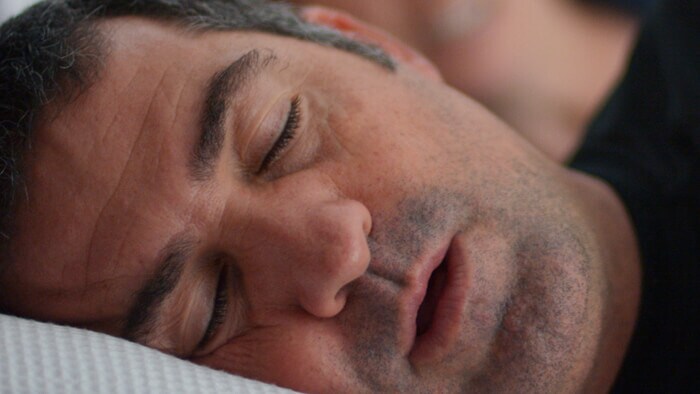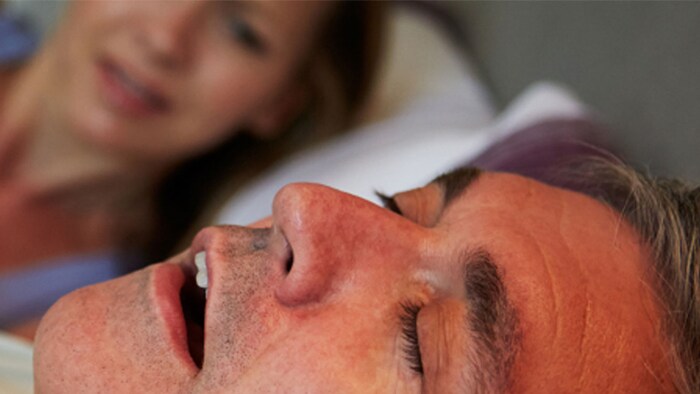Is snoring always a sign of apnea?
Snoring is often a symptom of sleep apnea, the potentially dangerous disorder wherein a person repeatedly stops and starts breathing while sleeping. But does snoring always point to sleep apnea? According to the Vancouver Sleep and Breathing Center, an estimated 30 percent of adults over 30 snore, and 40 percent of adults over 40 snore. Of the total snoring population, about 28 percent also experience sleep apnea. If you’re told you snore a lot, the best way to determine whether you are at risk of developing sleep apnea is to consult your physician. This online test is a good place to start. However, doctors point out, other factors besides sleep apnea can lead to loud bouts of snoring.
Weak throat muscles
Weak muscles in the throat can lead to blocked airways when you sleep, said Dr. Murray Grossan, an ear, nose and throat specialist in Los Angeles. That blockage can set off a cacophony of snoring. Speech therapists use throat exercises to strengthen the throat muscles and make throat tissue stiffer with less fat. Forceful mouth blowing can be therapeutic. Any forceful blowing, such as playing a trumpet or blowing up a balloon, strengthens the throat muscles and reduce snoring. Singing also may help. Researchers at the University of Exeter in the United Kingdom found singing for 20 minutes a day can significantly reduce snoring. “Singing can make the throat muscles stronger,” said Grossan.
The tip of your nose
Your nose has a valve located where the tip of the nose joins the “hard” part of the nose. “In childhood, the nasal tip is high up, and wide open,” Grossan said. But as you age, the tip droops down. “The lower the tip, the more blockage to breathing in sleep,” Grossan said, and suggested a non-surgical method of lifting the nasal tip to open up airways: Attach a 4-inch strip of ½-inch medical grade tape to the underside of the nasal tip. “Bring the tape up over the front of the nose, up to the area between the eyes. Make sure to gently lift the nasal tip to open the airway and then attach the tape,” he said.
Nasal or throat infections
A nasal infection often inflames throat tissue, especially the back and the sides of the throat where the tonsils are located. “If the tonsils swell, the airway is affected and people snore,” Grossan said. Massage and irrigation helps. At-home devices that use warm tap water to create a pulsing stream can wash and massage the tonsils and throat. “The massage action reduces the size of the swollen tissue and helps it become firm again,” he said. best with nasal surgery.”
Deviated septum
Dr. Houtan Chobaki, a facial plastic surgeon in Washington, D.C., noted a deviated septum is one of the most common causes of nasal blockage that triggers snoring. Surgery is the best option to open the nasal passages and minimize snoring related to blockages of bone and/or cartilage in the nose, he said. “Even younger patients who are thin can snore. And if they don’t have sleep apnea, this group generally does the best with nasal surgery.”


